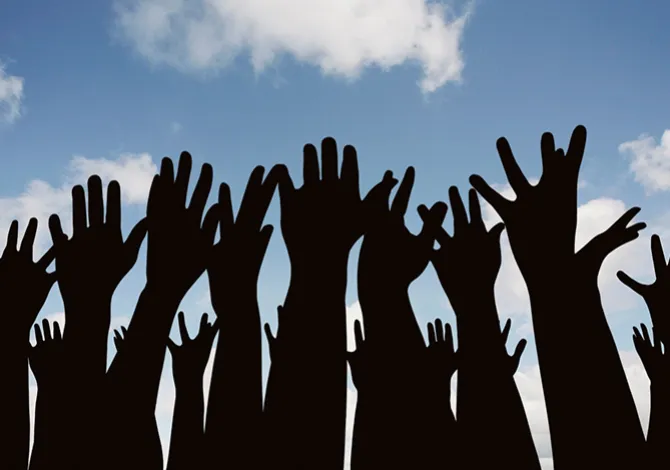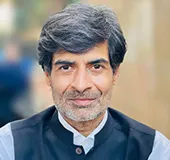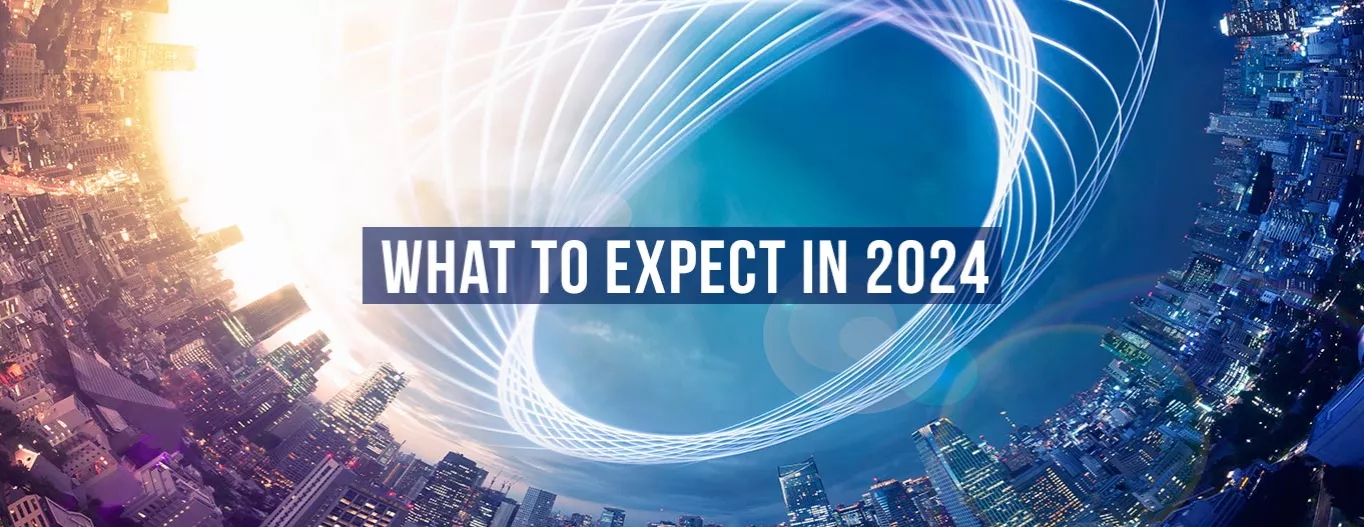
This essay is part of the "What to expect in 2024"
Over 50 nations will hold elections in 2024, causing an unprecedented churn in political mandates, governing institutions, and international affairs. No continent will be exempt.
Globally, national progress is being assessed feverishly and people’s voices are coalescing into verdicts. Indeed, 2024 will be consequential for democracy and the world order.
This is the first time in the digital age that major democracies will go to polls in the same year. The key electoral attributes of individual participation, mass mobilisation, political messaging and outreach will soon assume centre stage. But so will the inescapable elements that pervert democratic processes—online misinformation, disinformation, and propaganda. If the United States (US) election of 2016, with its deluge of fake news, was a watershed event, it may pale in comparison to what 2024 portends.
Globally, national progress is being assessed feverishly and people’s voices are coalescing into verdicts.
Among the most significant and keenly watched elections will be India’s. The world’s largest democracy—and arguably the world’s longest-running pluralistic society, given that the ancient doctrine of “dharma” was, in a sense, India’s original unwritten Constitution—will deliver a fresh mandate in the era of ChatGPT, deepfakes, and vlogs.
What is unique about the Indian general election is, quite simply, that it involves India. The country is one of the fastest-growing economies. It has completed a remarkably successful tenure as president of the G20. It is the single most development-obsessed geography, with its vision of inclusive development encompassing all of the Global South. One of India’s first interventions as G20 president, for instance, was to host the ‘Voice of the Global South Summit’, where it engaged with 125 other developing nations to understand their concerns and to shape its priorities at the G20 accordingly.
India is also one of the world’s most advanced digital societies. It has consolidated its position as a global tech-enabled services hub; its world-class model of digital public infrastructure (DPI) is being adopted and adapted by advanced and developing countries alike; and it is the highest-ranked country internationally in terms of AI skill penetration and talent concentration.
The key electoral attributes of individual participation, mass mobilisation, political messaging and outreach will soon assume centre stage.
The upcoming election will witness the interplay of India’s democratic urges, developmental aspirations, and technological sophistication.
During its G20 presidency, India rightly laid claim to being the “mother of democracy”, and re-emphasised democratic principles as an Eastern virtue. As Prime Minister Narendra Modi pointed out at the G20 Parliamentary Speakers’ Summit, millennia-old Indian scriptures mention the prevalence of assemblies, open debates, and democratic deliberations, “where collective decisions were made for the betterment of society”. This democratic concern for the greater good underpins the civilisational attribute of Vasudhaiva Kutumbakam’ (One Earth, One Family, One Future) that has guided India’s internal and external engagements.
India’s economic prowess, digital achievements, and diplomatic capabilities, coupled with its democratic credentials, make it the North Star of the Global South. Developing nations engaged in political and socio-cultural soul-searching need no longer choose between an unrelatable West and an authoritarian China. An Indian approach and example, more attuned to the needs of developing and emerging economies, is at hand.
It is the single most development-obsessed geography, with its vision of inclusive development encompassing all of the Global South.
The great Indian election: Delivery versus narratives
Today, India is on the verge of becoming a US$ 5-trillion economy. The International Monetary Fund says India could cross this milestone in 2026-27. Since the mid-2010s, the country’s GDP per capita has risen swiftly—from around US$ 1,600 per capita in 2014 to over US$ 2,612 today. Yet, the Indian leadership has advocated for a shift from a “GDP-centric worldview to a human-centric one”, and a liberal, people-focused economic vision that ensures personal growth and well-being.
This vision is in evidence across India. Over 99.9 percent of Indian adults have an Aadhaar digital identity today, transforming their ability to access public services. The country operates the world’s largest financial inclusion programme, serving over 500 million individuals, with 55.5 percent of these bank accounts belonging to women. And 30 million Indians make online financial transactions every day using the homegrown Unified Payments Interface and galvanising the global digital economy.
As the election of 2024 nears, other changes are palpable as well. Between 2006 and 2021, India lifted 415 million people out of poverty. A long-standing Indian focus on women-led development has reaped dividends: women now occupy 36 percent of senior and leadership positions at mid-sized businesses in India, surpassing the global average by 4 percent. Since 2013, the infant mortality rate has dropped from 39.082 to 26.619, and maternal mortality from 167 (per 100,000 live births) to 103. The country’s food grain production touched a record 315.7 million tonnes in 2021-22, bolstering food security.
The country operates the world’s largest financial inclusion programme, serving over 500 million individuals, with 55.5 percent of these bank accounts belonging to women.
These are inspiring stories. These are the reports of progress Indian citizens would like to wake up to every morning. Yet global media narratives mislead and distort and deliberately draw attention to cleavages and fault lines that any multicultural society, anywhere in the world, has to manage. A cursory look at leading Western media outlets—print, television, and digital—shows that they have chosen to position themselves as the ‘Opposition’ to Prime Minister Modi in these coming elections.
In 2019, Time magazine branded Prime Minister Modi as “India’s divider-in-chief” and wondered—misguidedly, as it turned out—if “the world’s largest democracy [could] ensure another five years of a Modi government”. The New York Times proclaims shrilly that “Since Mr. Modi took power in 2014, India’s once-proud claim to being a free democratic society has collapsed on many fronts”. The Washington Post believes that India appears to be “sliding into authoritarianism”. And the BBC—citing an Oxfam report—laments that the “richest 1% own 40.5% of India’s wealth”, failing to note that even as India creates wealth at the top it spurs mobility at the bottom, and is thus intrinsically different from the nature of European oligarchy.
PM Modi has been identified as one of the world’s most tech-savvy leaders. His government is using technology to deliver benefits to citizens and to communicate its goals at a population scale. There are thus two competing forces at work—on the one hand, the use of digital platforms by the global media to position itself as the anti-Modi coalition; and on the other hand, the use of technology by the Indian leadership to deliver transformational growth and attract people to their proposition.
There are thus two competing forces at work—on the one hand, the use of digital platforms by the global media to position itself as the anti-Modi coalition.
The Indian election will help us decisively evaluate the influence of the global media on domestic affairs, and answer two central questions. Can media narratives trump delivery, or will good governance and last-mile success trump narratives? And would we have been guilty of overhyping the role of the media if, in the end, lived experience and on-ground delivery win?
South rising: Why Indian democracy matters
Democracy is not a Western endowment and need not have a Western texture and tonality. Indeed, democracy for India is—as it is for much of the Global South—about promoting inclusive growth, infrastructure investments, climate action, women-led development, the mass adoption of environment-friendly lifestyles, and the establishment of DPI that universalises public service delivery, among other interventions. These are the building blocks of equity, without which there is no meaningful democracy. India has delivered in each of these areas. Its advocacy of women-led development at the G20 was accompanied by the passage of a landmark bill that reserves one-third of the seats in the lower house of the Indian parliament and state legislative assemblies for women. It is working on multiple fronts to meet its pledge of achieving net zero by 2070; its pathbreaking LiFE (lifestyle for environment) movement is gaining traction worldwide; and a broad spectrum of nations are partnering with India to build their DPI.
The country has co-opted big tech platforms as part of its growth story and upheld Indian laws while rebuffing sometimes anarchist Southern Californian ideas about freedom of expression.
India also recognises that for the deeply heterogeneous societies of the developing world, online safety is far more important than evangelical and absolutist free speech. Even as American platforms strive to homogenise the global understanding of free speech, India has wisely defended its Constitutional scheme of “reasonable restrictions”. The country has co-opted big tech platforms as part of its growth story and upheld Indian laws while rebuffing sometimes anarchist Southern Californian ideas about freedom of expression.
Collectively, these characteristics make democratic India a lighthouse for countries of the rising South. Since the pioneering ‘Voice of the Global South Summit’ at the outset of its G20 presidency in January 2023, all the way to the New Delhi Leaders’ Summit in September 2023, India has been hailed as the legitimate spokesperson of the Global South. At such a juncture, the Indian general election—the biggest democratic exercise on the planet—will go beyond reaffirming the power of democracy; it could make 2024 the year that took democracy home to the people of the world.
Samir Saran is the President of the Observer Research Foundation
The views expressed above belong to the author(s). ORF research and analyses now available on Telegram! Click here to access our curated content — blogs, longforms and interviews.




 PREV
PREV



